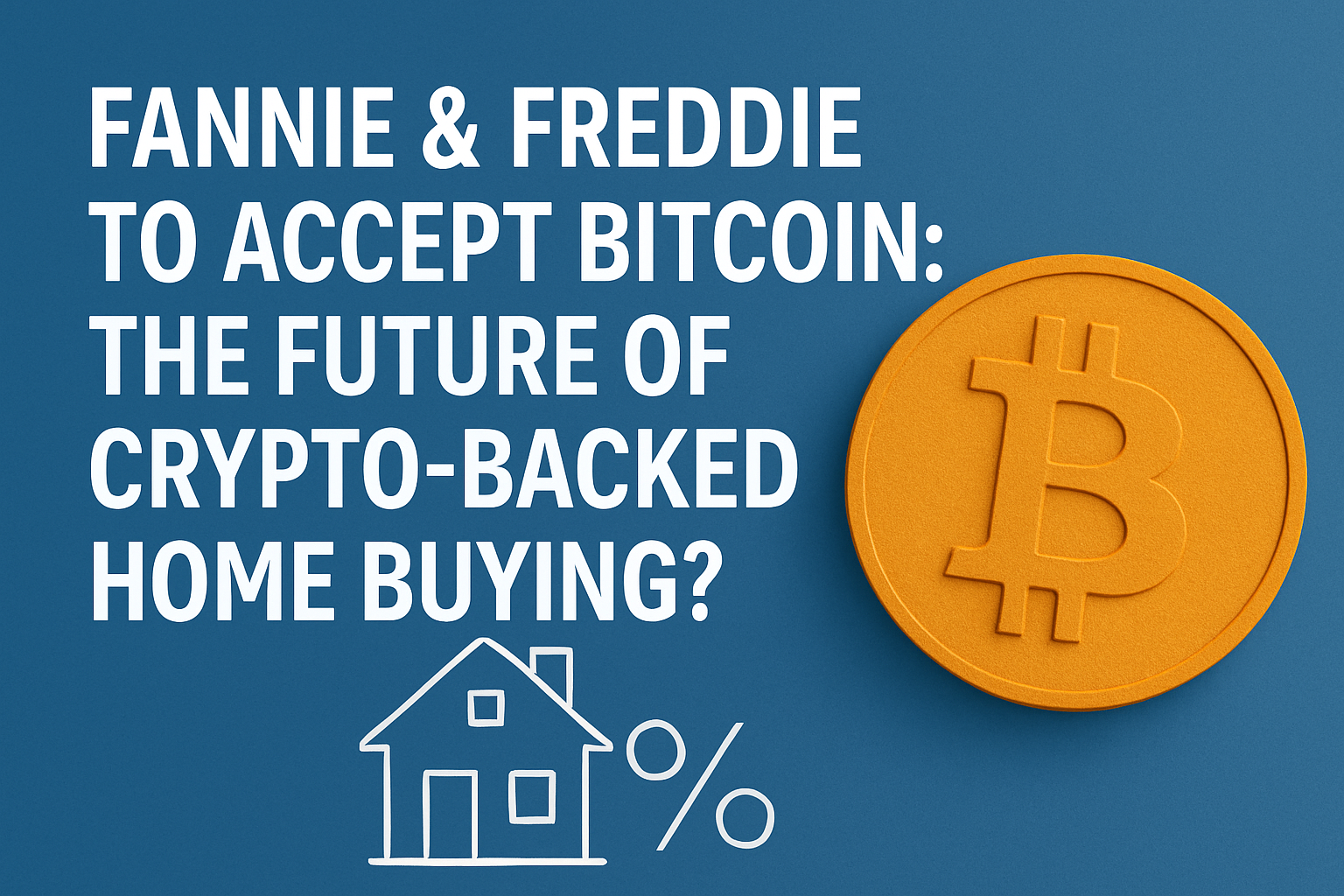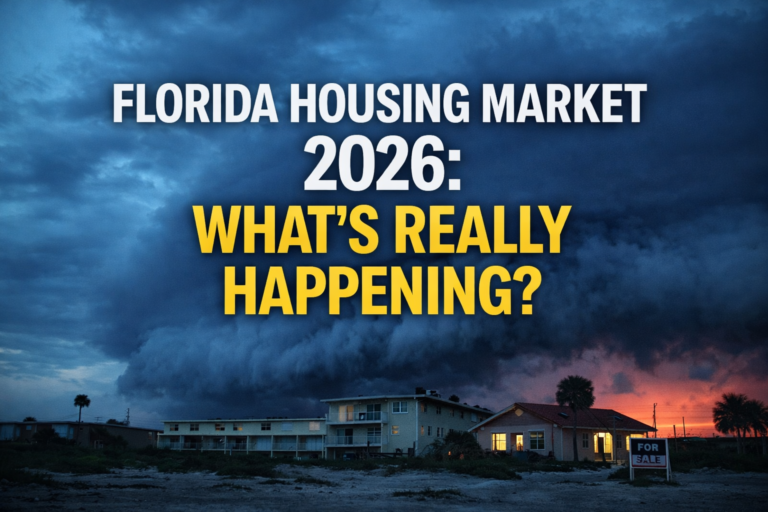
Crypto Enters the Mortgage Market
In a groundbreaking move, the Federal Housing Finance Agency (FHFA) has directed Fannie Mae and Freddie Mac to begin accepting Bitcoin and other digital assets in select mortgage transactions. This shift comes as more Americans build wealth through cryptocurrency, with one study showing that 12% of 2025 homebuyers plan to use crypto as part of their financing strategy .
This decision has the potential to reshape how lenders evaluate assets and how crypto investors access homeownership. But it’s also igniting controversy among lawmakers and policy analysts.
What the FHFA Directive Includes
This isn’t an open crypto-for-mortgages policy—yet. The FHFA has authorized limited pilot programs under tight supervision, requiring digital assets like Bitcoin to be:
- Used for asset verification, such as proof of reserves or financial backing.
- Converted to U.S. dollars via regulated custodians before closing.
- Tracked with full documentation to maintain regulatory and financial transparency.
The goal is to bridge the gap between decentralized wealth and regulated mortgage lending while testing risks and benefits in a controlled environment.
Benefits for Crypto-Savvy Buyers
This directive is a significant win for crypto investors who have struggled to leverage their digital wealth in traditional finance. For this demographic, the move could:
- Simplify down payment and net worth verification using BTC or ETH.
- Help younger, digital-first buyers participate in the housing market.
- Eliminate the need to fully liquidate crypto portfolios early in the process.
- Align with the evolving “crypto-fueled American Dream,” as outlined by Cointelegraph .
With Bitcoin now integrated into Fannie and Freddie’s risk models, crypto is being taken seriously in places it never was before.
Concerns from Policymakers and Critics
Not everyone is on board.
According to CoinTribune, a group of U.S. senators is pushing back. Their objections include:
- Crypto’s volatility, which could increase default risks if collateralized values drop.
- National security and privacy concerns related to anonymous crypto transactions.
- A perceived lack of regulatory infrastructure to monitor these activities responsibly .
There’s also concern that tying federal housing entities to speculative assets might place taxpayer dollars at risk. Critics argue the FHFA should wait for clearer federal legislation before launching such programs.
Industry Reaction: Divided but Watching Closely
The mortgage industry is reacting with cautious optimism. While traditional banks remain hesitant—lacking proper infrastructure to integrate digital assets—fintech lenders are seeing this as a growth opportunity.
- Some mortgage brokers have already started marketing “crypto-friendly” home loan options.
- Real estate brokerages are preparing educational materials for agents and clients.
- Still, many express concern about documentation standards and tax complexity.
It’s clear that implementation won’t be seamless, but demand is already growing.
What Homebuyers Need to Know
If you’re thinking of using cryptocurrency to buy a home, here’s what to consider:
- Work with a lender approved for FHFA’s pilot program. Not all lenders are participating.
- Prepare for taxes. Converting Bitcoin to USD is a taxable event and could trigger capital gains.
- Expect more scrutiny. You’ll need detailed transaction records, identity verification, and crypto wallet documentation.
- Talk to a financial advisor who understands both real estate and digital assets.
Long-Term Impacts on Real Estate Finance
The FHFA’s decision may be the first domino to fall in a broader shift toward crypto-based real estate systems:
- Tokenized real estate and fractional ownership via blockchain.
- Crypto mortgage-backed securities (CMBS) for secondary markets.
- Smart contract-based lending, reducing paperwork and speeding up closings.
If successful, this could redefine home buying—and real estate finance—as we know it.
Conclusion: Is This the New American Dream?
The integration of Bitcoin into government-backed mortgage processes shows how far crypto has come. What once was fringe is now part of federal housing policy.
While there are still risks and strong opposition, the FHFA’s decision to accept Bitcoin could empower millions of Americans holding digital wealth to enter the real estate market. Whether this marks a passing trend or the foundation of a new financial paradigm, one thing is clear: crypto is no longer on the sidelines.
Considering using Bitcoin for a home purchase? Start planning with a lender familiar with crypto mortgages and protect your gains with smart tax strategies.


